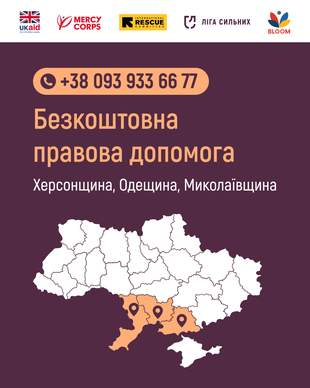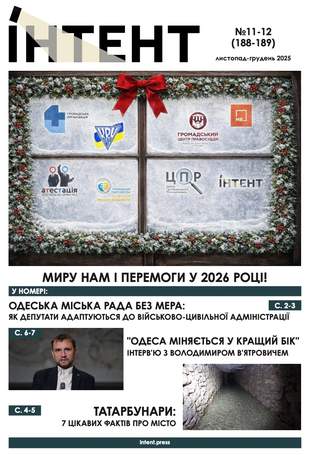Меню
Соціальні мережі
Розділи
Jan. 10, 2024, 10:12 p.m.
"I feel like I'm sitting in a bunker and looking at the world through a small window" - the Mariupol resident's story
This article also available in English548
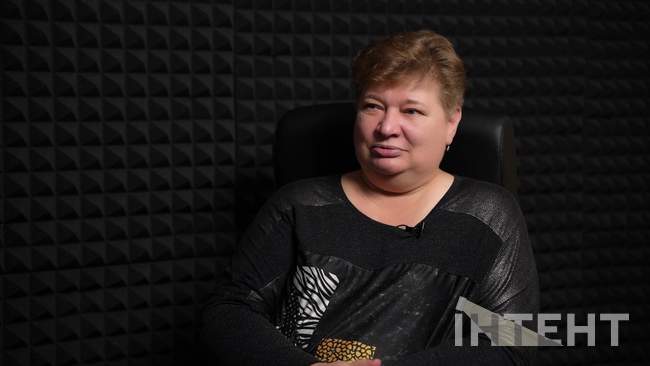
Photo: Intent/Natalia Dovbysh
Anzhela Bilodid is the author of the Mariupol diary titled "True Story". The diary comprises records documenting events and thoughts in a school notebook, along with photographs, covering the period from February 24 to March 16, 2022. Leaving before March 14 was impossible due to a humanitarian catastrophe and constant artillery and air strikes in the heart of Europe in the 21st century. International journalists had the opportunity to speak with the author of the diary.
The photo book "True Story": what is it about?
We were in Mariupol on February 24 and were not going to leave because we were working in the port. My husband is a responsible person, and we had to organize the delivery of bread, flour, etc., while we still had connection. Later, it disappeared entirely. On March 2, a substation in Mariupol was apparently hit, causing a power outage, followed by a water one. Then, on the evening of March 6, the gas supply was cut off. We were deprived of all the civilisation benefits. Under constant bombardment, one is in such a stressful state that thoughts and events become muddled. You feel like you don't belong to yourself; you're just trying to survive. To maintain clarity and perhaps to preserve my sanity, I began writing in my school notebook. Initially, I recorded the day's events quite briefly".
On March 7, I left the house for the first time, I hadn't left before at all. My husband drove to the port, brought food, and served as my connection to the outside world. I was scared, I was shaking, I cried a lot, and my entire world was limited to one apartment. When the bombing subsided a little or moved away, I looked out from the balcony, sometimes taking pictures with my phone. For example, they delivered water in a big orange truck—usually, we used such trucks to water our plants. There was a huge queue of people waiting for this water, which was very red. I noticed it when they were carrying this water in transparent bottles. But if people didn't have any, they must have been doing something.
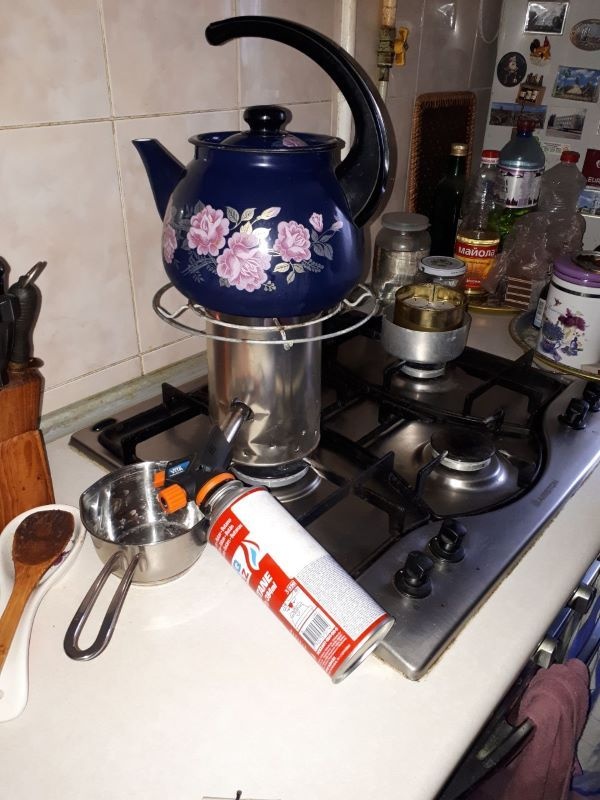
Photo: Anzhela Bilodid
At that moment, I was charging my phone only to take a few snapshots of the horror I witnessed. Due to limited movement, we didn't see much, but we heard about events from others. There was no connection, no news—just a complete information vacuum. The only available source was AM radio on short waves because FM didn't work; AM signals were jammed by the rashists. Occasionally, at 4 am, you could catch "Ukrainian Radio". During alarms, they played music; there was no information".
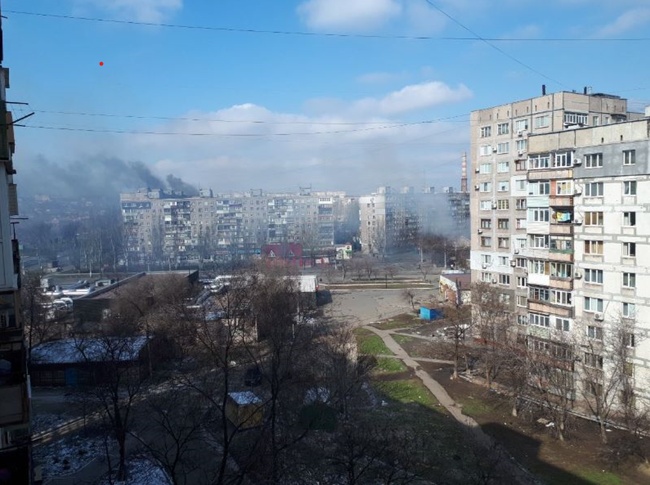
Photo: Anzhela Bilodid
"In between running around and cooking, I made notes. At first they were brief, but later I began writing down even my thoughts. I didn't keep a diary as a child, so you can understand that this is not my thing. To save the space I took a picture of the spread whenever two pages of my notebook were filled. I thought what if there was a fire, as though the phone didn't burn. Then, I hoped that if there was a connection, I could send it. I don't know what I was hoping for.
When we left on March 16, the city centre was being bombed by aircraft. As we were departing, the central market was already on fire. So, we just turned onto Metalurhiv Avenue and an aircraft dropped a bomb. Fortunately, it took us 12 hours to reach Zaporizhzhia, a journey that would have normally taken 3-4 hours. Some people took 3-4 days to get there.
In the evening, when volunteers placed us in a kindergarten, we were told that the Drama Theater was hit. We knew that there were many people with children. On the first day in Zaporizhzhia, we went out like a light because it was impossible to sleep in Mariupol. At first it was scary to fall asleep. Of course, my husband fell asleep due to physical activity, so if we had to flee, I woke him quickly, and we rushed into the hall or corridor. I spent a lot of time in the corridor, on mattresses, where it was cold without heating. The temperature in the apartment was 12 and sometimes even 10 degrees. When I wrote in my diary, the refill in my pen froze.
Why did you decide to publish these notebooks?
I needed mental rehabilitation, so I went to the Chernihiv region, where my husband's relatives live. I think I picked up a camera in June. I couldn't do it before, I didn't want to do anything and I didn't understand what it was all for if we are being killed now. It's hard to explain. I spent 7 months in the Chernihiv region, walking in the woods, crying out, coming to my senses. Gradually, I took up photography.
I felt that I could return to society, to Odesa, and I wanted to communicate with photographers, because in Mariupol I was the head of the people's photo club "Bereh". I wanted to come to Odesa, talk to photographers I knew, and visit the "Photon" and "Photon-2" photo clubs.
In December, my boys took me here. They surprised me, came without warning, and I cried with joy that they were taking me away. Here I started to come back to life, but it was impossible not to think about what had happened. In September, I decided to re-read my diary and realised that I could not understand half the words there. Then I felt a little better and was able to type it into a document page by page, just as it was written.
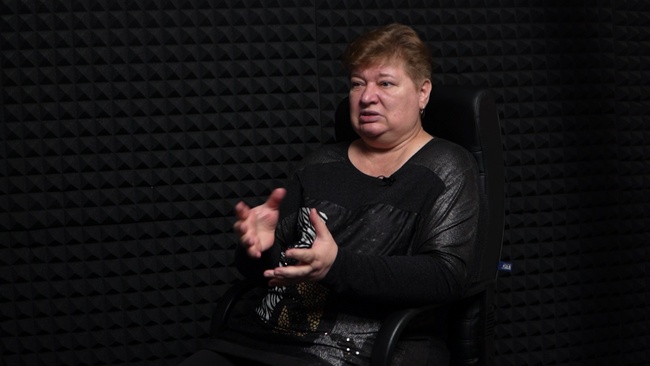
Photo: Intent/Natalia Dovbysh
In July 2022, together with the Greek Society in Ukraine, we published a book titled "The Bloody History of Maria’s City," which included my and my clubmates’ photos. That's when I thought, why not turn my diary into an album? I worked on it for a long time and ordered a photo album. And by that time, in December 2022, I had already met people from the NGO "Odesa Institute of Social Technologies". The head of this organisation, Andrii Krupnyk, said that it is not only I but also society who needed this, and he latched onto the idea. This is my husband's and my story of survival, and I did it for myself, not to show it off to the public.
How did you manage to leave? Were you searched at checkpoints? How did you manage to take your notebooks and photos out?
We knew that the war started in 2014. We understood that we would be searched at checkpoints and could be stripped. We prepared as much as possible—I hid the diaries somewhere far away with the apartment documents among my belongings. The phones were turned off, but they were also hidden deeply as there was no connection. I had some old phones, I think they even had buttons, so I grabbed two phones and two wires to imitate the functioning and placed them on top of our handbags. After all, who would charge them at the checkpoint?".
We did not leave alone but took our friends and neighbours with us. There was no room; it was impossible to leave Mariupol without a car. There were six of us in the car. Everything that did not fit in the trunk, which was packed up to the ceiling, ended up on my knees, under my feet, everywhere. I told my husband that if the equipment did not fit, I would sit on the hood like a doll. I was afraid.
As we were leaving, people were walking on foot with children; some were with wheelbarrows - everyone used what they had just to get as far away from this hell as possible. Columns of cars were driving fast, all covered with white rags. At the checkpoints, we saw Russian soldiers standing with white rags tied on their knees, maybe, to be easily distinguished. Their uniform looked frightening; they must have been members of the Donetsk People's Republic. I mean, it was old and worn out. The first convoy left on March 14.
Our upstairs neighbours had been going to the centre to the Drama Theater every day since March 5, hoping for a corridor. They heard on the radio that it would be there. The corridor means that there will be no shelling and people will be able to leave, but the shelling did not stop. Our soldiers were shouting at people to leave and not to gather because no one was going anywhere. People were angry that they were not allowed to leave. Later, we learned that there was a breakthrough at Chonhar and that the military was coming not only from the Donetsk direction but also from the Berdiansk. This made us realise that Mariupol was under siege and had little chance.
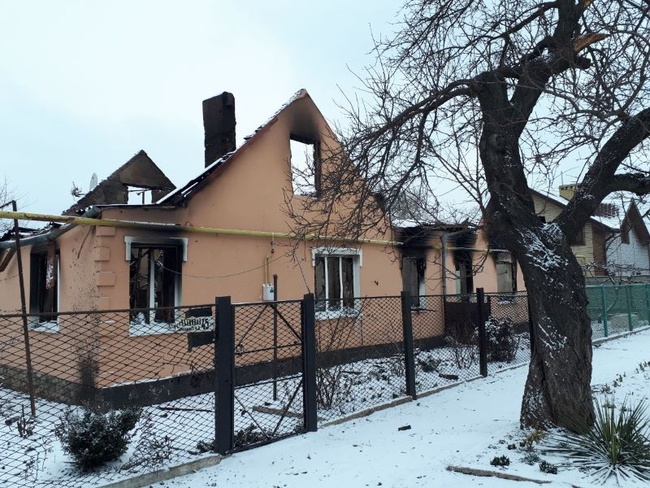
Photo: Anzhela Bilodid
People came from different parts of the city, but everyone was leaving. And it was a continuous column of cars covered with white rags and sheets of paper with inscriptions "Children". Ahead of us, we saw young boys being stopped and even stripped. They didn't pay much attention to our car, asking us once and checking the trunk. Our friends logged out of social networks and deleted their accounts. I didn't do that.
On December 26, 2021, it snowed, it was incredibly beautiful. The city was covered in snow; everything was cleaned up for the New Year. I grabbed my camera and ran to take pictures, running around wherever I could while it was still light. Later, when I left and picked up the camera, somewhere in June 2022, I found these photos on a flash drive. It was like finding a treasure, my last peaceful photo shoot in Mariupol. If I had known, I would have explored every corner.
When you were able to leave, how did you manage to adapt and what were the contrasts between other cities and Mariupol?
When we left, there was such a contrast compared to the hell that had been going on there. We drove into a village above the sea, where people were standing outside a store, talking. We could not understand how this was possible 30 km from Mariupol. I mean, there were already Russian soldiers, they were coming from somewhere, but it was calm, no shelling, with stores open. In Mariupol, money was a piece of paper that could be used to make a fire. It was completely useless. There was a lot of looting, and all the negative things about people came to light.
I was afraid to go to the supermarket nearby when I arrived in Odesa. I couldn't go far from the entrance. I felt like I was sitting in some kind of bunker with a small window through which I could see out. It took me a long time to get used to the fact that life goes on. People live, communicate, and go to cafés.
You were born in the Kherson region, studied in Odesa, and lived in Mariupol for more than 30 years. How did fate bring you there?
Odesa introduced me to my husband because we studied at the same university and lived in a dormitory. He had graduated, I was in my third year, and he said: "If we are married, it won't be like you study here and I go somewhere else. Either we are together, or what we are married for". So I transferred to an extramural department and went with him to Zhdanov (the name of Mariupol from 1948 to 1989 - ed.). He could still choose where to go according to the distribution. The only thing I said in 1988 was that we could go anywhere but only within Ukraine. We had an offer from Kherson, but they didn't provide accommodation. We were a family of students, as people say, poor as a church mouse. In Zhdanov, we were offered a room in a dormitory, which suited us, though none of us knew where Zhdanov was and what it was like. Obviously, there is the Sea of Azov, but we had never been there before.
In 1989, there was a movement to rename the towns, to return their historical names, and of course, no one was happy with the Soviet figure Zhdanov. The movement representatives started collecting signatures near the Central Department Store, and my signature was also there. Even though we are not indigenous Mariupol residents, we have the right to call it our Mariupol. When we went there in 1988, we had an idea of Azovstal and the Ilich plant. We understood that it was a metallurgical giant and thought that people wore gas masks there. We were preparing ourselves to work there for a while and then to go somewhere else. But when we arrived, it was such a green and cosy place. However, sometimes you could smell the smoke when the wind changed.
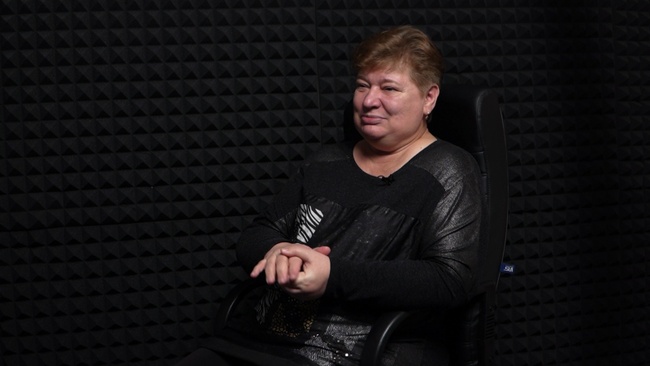
Photo: Natalia Dovbysh/Intent
In recent years, when money started to remain in the community, the development began. The whole city is modern, even Odesa is different in some issues. To get documents or a reference, you have to queue up for 15 minutes and get everything done. I dreamed so much of having lights on the main streets and buildings like in Odesa so that the architecture could be clearly seen. They finally did, literally three or four years before the full-scale invasion. There were various book and music festivals. My children from Odesa bought tickets and came to Mariupol Fest specifically.
Did you feel like you lived in a frontline city? Did the occupation of the city in 2014 change your life?
We felt it very strongly in 2014, at that time the war started for us. Already in 2015, I guess, a residential building on the left bank was hit. It was shelled in the morning when people went to the market near the house. Several shells fell and, of course, killed a lot of people, shattered windows.
In May 2014, nothing was clear. Tanks and APCs were standing there and shooting. People were taking pictures with their mouths open. No one could understand what was happening. Our police station was demolished. It was like watching a film through the window, with people running and shooting. As I remember, these groups were kicked out in June. But they controlled the city for some time and burned down our executive committee. There were riots in the centre, but the city lived. So, when we were driving to or from work and saw the destruction, we had to go around. Then they sent our military, and there was an explosion on the bridge. Machine gunners were running around in our yard.
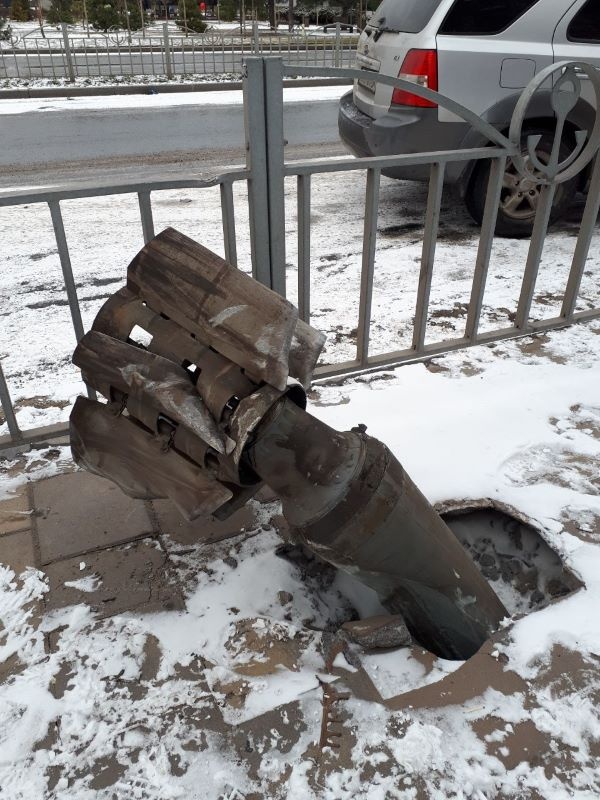
Photo: Anzhela Bilodid
Shyroke was not far away. When it exploded there, we had already learnt to distinguish between heavy and light artillery. I had hysteria since 2014 when we were thinking about leaving. We always felt like a frontline city because there were a lot of soldiers. Besides the Azov, you could see border guards and maritime border guards. They went to the contact line, as they say now, kilometre zero. From the Donetsk direction, people came to shop in our stores with coupons. And it was clear that people were suffering greatly from the war.
Honestly, when the full-scale invasion began, with so many soldiers, some fortifications being dug around Mariupol and the port being loaded with timber for dugouts, I was sure that we had a defence force around us. I was absolutely sure that we would be repulsed. Mariupol has always held a line since 2014. When we heard that there was an offensive from Berdiansk, i.e. from Crimea, we realised that we were surrounded. If only the attack had been from the occupied territory, we might have fought back. How it happened that they came from Crimea is certainly not our question.
Do Ukrainians need to create any cultural product about the events in Mariupol now?
I don't watch such things. I only watched the reflections on the film "Yuryk". I understood that our Mariupol residents, who were able to watch it, criticized it. I didn't have the moral strength to watch it. If you have lived through it and watched it, you remember and even feel what had been happening then. However, the human body works to preserve itself, and it dulls memories and feelings.
Now, when "20 Days in Mariupol" and "Yuryk" come out, I don't need to watch it, I was there. I may not have seen everything. I didn't see the corpses in the street because I didn't move around much, but my sister did. Who will remove them?
I started to feel sorry for myself that it happened to me, and I had to live through it. The memories of that animal fear, where you can't control anything and nothing depends on you, are scary. Aircraft were the worst thing that could happen. You don't know whether you will be alive to see the next dusk or the next morning.
Only those who have lived through it can fully understand, but I don't want anyone to experience it again. You can watch this content without trying it on yourself because it is also psychologically difficult. There was no help from firefighters. Doctors worked only in hospitals, but they were bombed and then completely destroyed by air strikes. A house is on fire, and there are no firefighters to put it out. Here in Odesa, there are attacks, but the city authorities and services are on duty. As soon as something happens, they come and help clear the rubble and provide medical and psychological support. This was not about Mariupol.
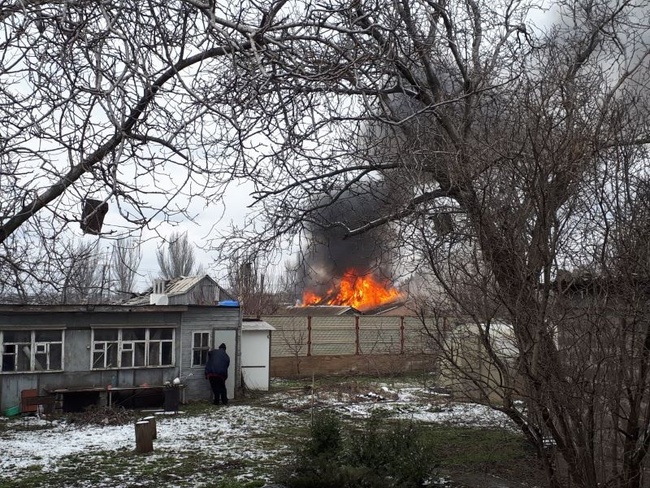
Photo: Anzhela Bilodid
"When a bomb fell behind our house on 12 March, and everything was blown out, the house was shaking so much that we thought half of it was destroyed. Due to the explosion, the earth flew over the nine-storey building and smashed people's windscreens, bent the metal on cars. After we left the city, my husband voiced his thought that if there had been another bomb, we would not have had a car and would not have been able to leave at all. I was already hysterically telling him that my life was in his hands. I couldn't leave without him. In fact, it was only thanks to him that I survived.
How have you settled in Odesa?
I love photography, beautiful pictures and nature. I love Diukivskyi Park, you have such beautiful places, parks, but they need to be put in order a little. Sometimes, I go there to take pictures in Odesa; people there are a little less wild than in Mariupol. They don't attack me because I have a camera.
In addition, the Odesa Institute of Social Technologies and Andrii Krupnyk organize drawing workshops. I am a creative person, I have been trying to draw since childhood. We organised photo exhibitions in the scientific library in Chornomorsk and in Yuzhne.
I lead a social life in Odesa, communicate with IDPs, and visit the "Photon 2" photo club. Once a month, they hold competitions and meetings at the World Club of Odesa citizens. I used to go to work every day. Now I've been freed from everything by those bastards who are "behind the curb". I am not working yet, but I am busy with something. The preparation of this book took some time. Andrii Semenovych and the librarians say that it is necessary to make it into a real book with a registration number at the Book Chamber of Ukraine in order to receive a complete book. I don't mind, but I don't have money for it. I’d like to find a sponsor who would do it, if it is interesting, of course.
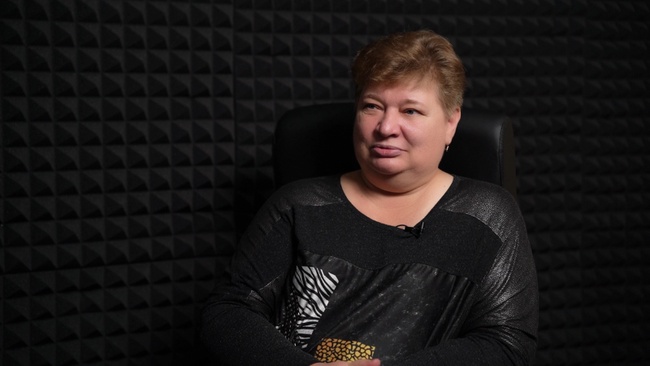
Photo: Natalia Dovbysh/Intent
During these seven months that I spent in the forest, I sometimes wrote poetry. They are a little bit related to the military theme. There are 14 poems in total, but I decided to make it into a photo book. As my friend said: "If we survived, Anzhela, it means that God has other plans for us." I decided that I had to do something because I had survived for a reason.
